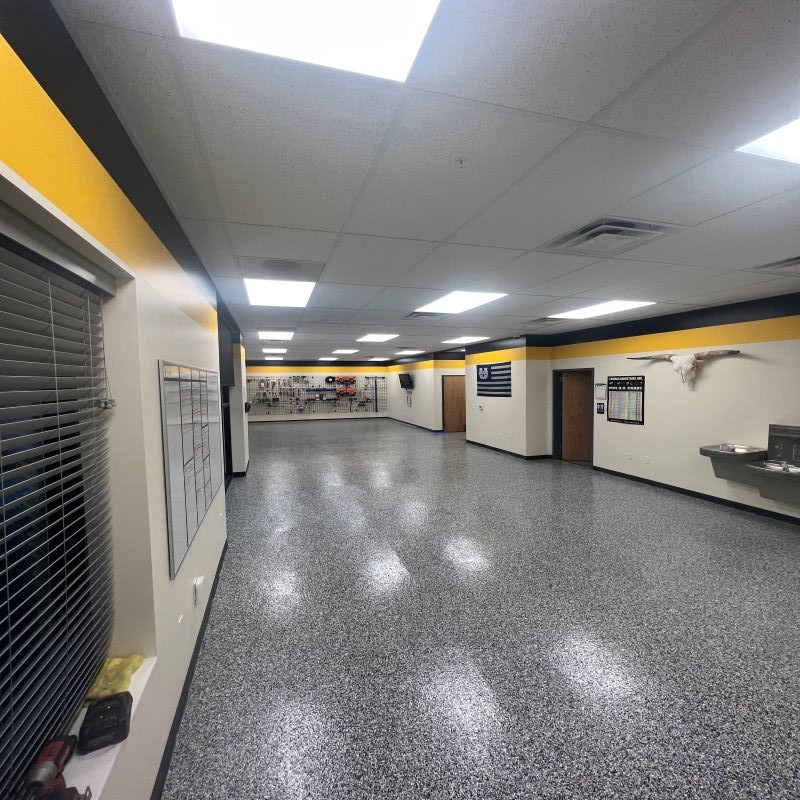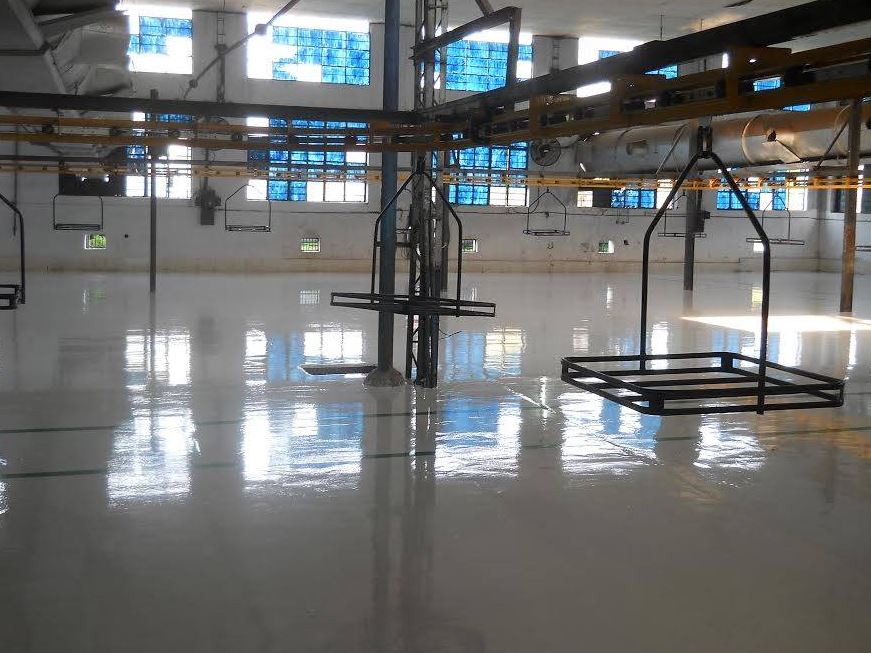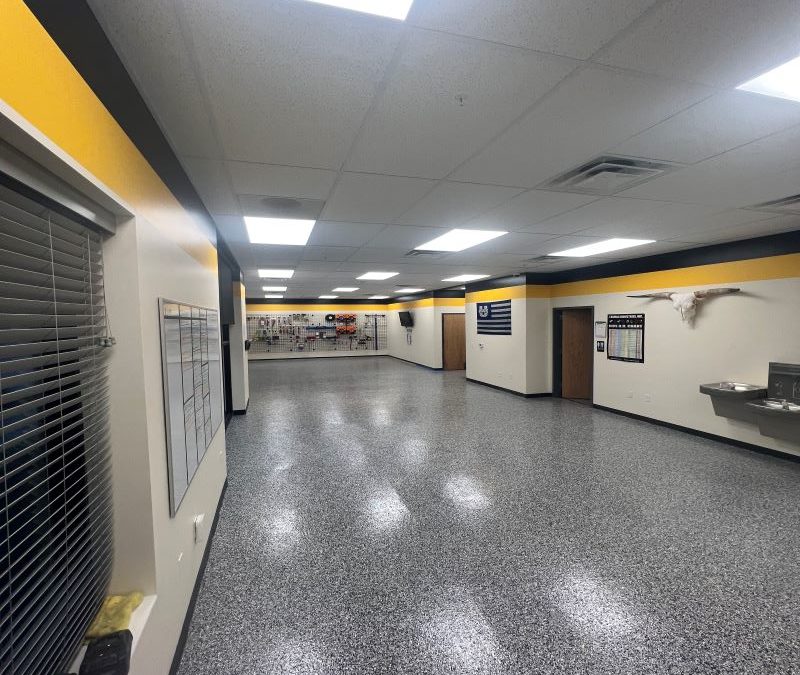Everything You Must Know About Industrial Epoxy Floor Coating
Floor coatings play a crucial role in enhancing the durability and appearance of floors in industrial and commercial settings. While there are many different types of coatings available, industrial epoxy floor coatings are one of the most popular options. They are well-known for their ability to add a tough, durable layer to concrete floors, making them resistant to damage from heavy loads and chemical spills. Today, we will discuss everything you need to know about industrial epoxy floor coatings.
Discover the Power of Industrial Epoxy Floor Coatings
Industrial epoxy floor coatings have become increasingly popular due to their numerous benefits. These coatings are extremely durable, long-lasting, and can withstand heavy loads and traffic. They are designed to provide a seamless, smooth, and high-gloss finish that not only enhances the appearance of your facility but also protects the underlying concrete floor. Epoxy floor coatings are made up of a two-part system consisting of an epoxide resin and a curing agent. When these two components are mixed together, a chemical reaction occurs, resulting in a strong, highly adhesive, and resistant coating system that can be applied to a wide range of surfaces.
The thickness of an industrial epoxy floor coating can range from 2 to 3 millimeters or more, depending on the needs and requirements of the facility. This thickness provides superior protection against wear and tear, abrasion, chemicals, and impact. Furthermore, industrial epoxy floor coatings are slip-resistant, making them an ideal choice for facilities with high foot traffic. They are also easy to maintain and clean, requiring only simple cleaning solutions and occasional buffing to maintain their shine and luster.

Industrial Epoxy Floor
Types of Industrial Epoxy Floor Coating
Industrial epoxy floor coatings are a popular flooring choice for commercial, industrial, and residential settings due to their durability, chemical resistance, and overall aesthetic appeal. In addition, epoxy floor coatings come in a variety of types and finishes, offering a range of features to meet different flooring needs.
One of the most common types of industrial epoxy floor coatings is self-leveling epoxy. This type of epoxy coating is ideal for floors with minor defects or unevenness, as it can mask any surface imperfections and provide a smooth, even surface. It is great for spaces like warehouses, garages, and workshops, where a flat surface is crucial for safety and efficiency.
Mortar Epoxy is another type of industrial epoxy floor coating that is specifically designed for floors that require repairs or renovation. It is ideal for floors with deep scratches and holes, as it goes beyond the surface level and repairs any underlying structural damage. This type of coating is commonly used in industrial settings where floors are subjected to extreme wear and tear and require regular maintenance.
Terrazzo Epoxy is another popular type of industrial epoxy floor coating, commonly used in commercial and industrial settings with heavy traffic. This type of coating is perfect for environments like hospitals, schools, and factories, where the floors need to withstand heavy loads of people and equipment. Terrazzo Epoxy provides a durable and slip-resistant surface that can handle heavy traffic and is easy to maintain.
Quartz-Filled Epoxy is used primarily in settings where hygiene and safety are paramount, such as in the food and beverage industry. This coating provides a clean and antimicrobial surface that is slip-resistant and easy to clean. Quartz-Filled Epoxy is ideal for environments where cleanliness and hygiene are essential, like hospitals, laboratories, and food processing plants.
Benefits of Industrial Epoxy Floor Coatings
Adding an industrial epoxy floor coating to your facility floors offers numerous benefits. Some of these include: Apart from their durability, epoxy coatings also offer aesthetic value to your facility. Their shiny, glossy finish creates an instant appeal that amplifies the appearance of the floors. This professional look can enhance the overall image of your facility, building brand reputation amongst clients and stakeholders. The smooth, reflective surface of epoxy coatings also helps to brighten up the facility, providing an uplifting and motivating work environment for employees.
Safety is an important consideration when it comes to flooring in industrial and manufacturing settings. Epoxy coatings offer slip-resistant surfaces that reduce the risk of slip-and-fall accidents, especially in areas where spills and oils can create hazards. Further, maintaining the cleanliness of your facility is much easier with epoxy coatings. They are easy to clean and do not accumulate unwanted debris and materials that can attract dust and germs.
Perhaps the most significant benefit of epoxy coatings is their cost-effectiveness. They can save up to ten times the cost compared to other flooring options due to their longer lifespan and requiring less maintenance over time. In addition to their cost-effectiveness, epoxy coatings are also eco-friendly. Since they require fewer resources and cause less wastage during installation, getting an epoxy-coated floor is an environment-friendly option.

Benefits of Industrial Epoxy Flooring
Installation of Industrial Epoxy Floor Coatings
Industrial Epoxy floor coatings need to be installed by professionals. The process involves four significant stages:
- Surface preparation: This is a critical step in the installation process, which involves thoroughly cleaning and preparing the concrete surface for the epoxy coating. The surface must be free from dirt, dust, grease, and other contaminants that can hinder the adhesion of the epoxy. The floor is washed with a degreaser and rinsed with water to remove all traces of debris. If there are any cracks or damages, they must be repaired before applying the epoxy.
- Etching or grinding: To achieve optimal adhesion of the epoxy to the concrete surface, the floor is mechanically abraded through grinding or etching. This process creates a rough surface that allows the epoxy to penetrate and bond with the concrete. The concrete surface is then acid washed to neutralize any alkaline substances that may affect the epoxy.
- Epoxy application: The next step is to apply the epoxy coating to the prepared concrete surface. The application is done in layers, with each layer allowed to dry before the next one is applied. Depending on the type of epoxy coating used, the thickness of the layers can vary. The first coat of epoxy is typically the thinnest, followed by additional layers that gradually increase in thickness. Epoxy coatings come in a variety of colors and can be customized to meet the needs and preferences of the facility.
- Curing: Once the last layer of epoxy is applied, the floor needs to cure for at least 24 hours before it can be walked on. During this time, the epoxy undergoes a chemical reaction that transforms it into a strong, durable surface. It is important to avoid any foot traffic, equipment, or other heavy loads on the floor during this curing time to ensure the quality and effectiveness of the epoxy.
Industrial epoxy floor coatings are a perfect option for commercial and industrial floors. They provide a safe, durable, hygienic, and aesthetically appealing surface. There are different types of coatings available for varying needs, and professional installation is recommended to ensure the best results. With proper installation and maintenance, epoxy floor coatings can serve your facility for years, and you won’t have to worry about repairing or replacing the surface.

